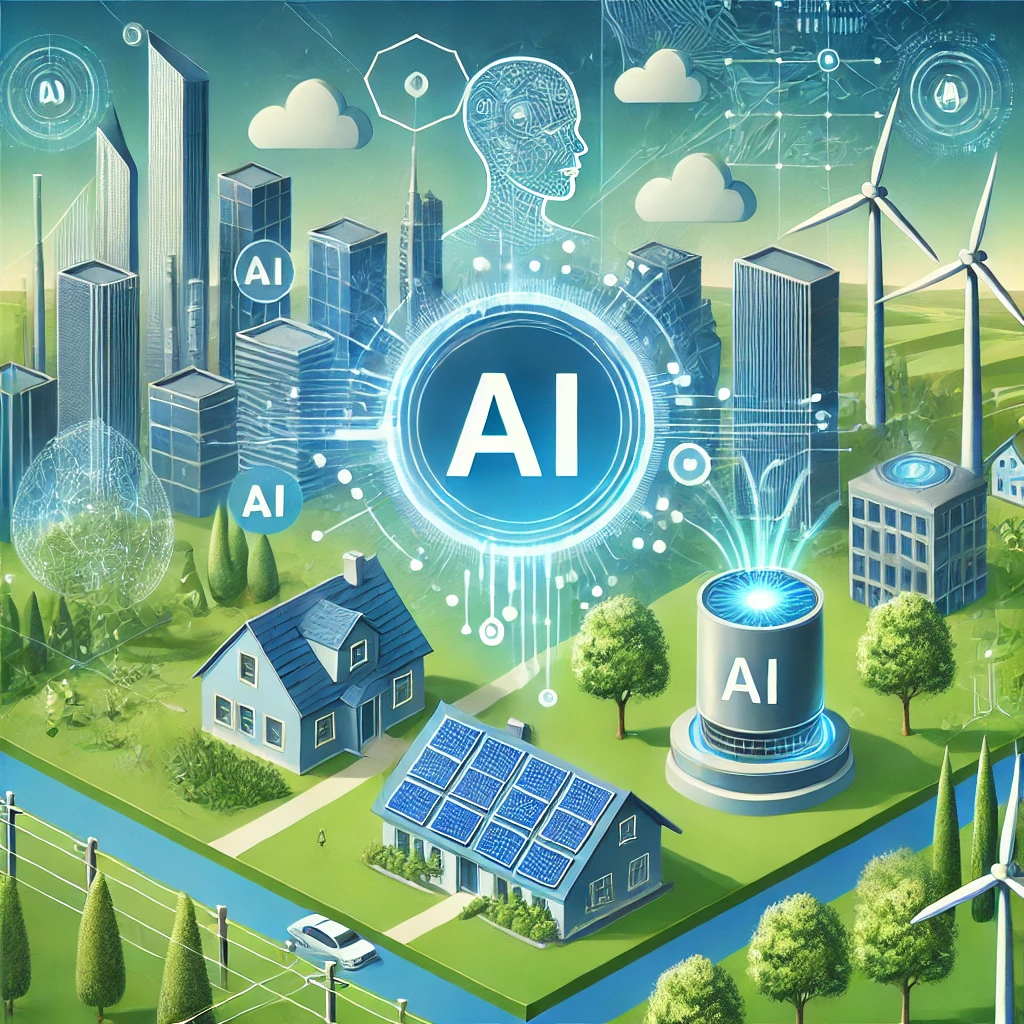AI technologies are revolutionizing how energy is managed and consumed, making it possible to reduce waste and increase efficiency on a global scale.
- Smart Grids and Energy Distribution
AI-powered smart grids analyze energy consumption patterns in real-time, ensuring efficient distribution and reducing energy loss.
Dynamic adjustments: AI predicts energy demand and adjusts supply accordingly.
Integration of renewables: Smart grids incorporate solar, wind, and other renewable energy sources seamlessly.
Load balancing: AI ensures stable energy distribution by preventing overloading and blackouts.
- Optimizing Industrial Processes
Industrial sectors are among the largest energy consumers. AI helps reduce energy usage in manufacturing, transportation, and logistics.
Predictive maintenance: AI detects potential issues in machinery, preventing energy loss from inefficient equipment.
Process optimization: Machine learning models identify energy-saving opportunities in production lines.
- Smart Cities and Buildings
AI transforms urban environments into energy-efficient ecosystems.
Energy-efficient buildings: AI manages lighting, heating, and cooling systems based on occupancy and weather conditions.
Traffic optimization: AI reduces fuel consumption by optimizing traffic flow and public transport routes.
Waste management: AI-powered systems minimize energy use in waste collection and recycling.
AI in Renewable Energy Management
Renewable energy sources are key to combating climate change, and AI enhances their efficiency and reliability.
- Solar and Wind Energy Optimization
Predictive analytics: AI forecasts weather patterns to optimize the generation of solar and wind energy.
Grid integration: AI ensures smooth integration of intermittent renewable energy sources into existing power grids.
- Battery Storage Management
AI optimizes the use and storage of renewable energy by predicting demand and managing battery performance.
Real-World Applications
Several companies and initiatives are leveraging AI to combat climate change:
Google’s DeepMind: Optimized energy usage in data centers, reducing cooling energy consumption by 40%.
IBM Green Horizon Project: Uses AI to monitor air quality and optimize renewable energy production in cities.
Siemens Smart Infrastructure: Implements AI in building automation systems to minimize energy waste.
Benefits of AI in Combating Climate Change
Reduced emissions: More efficient energy use leads to a significant reduction in greenhouse gas emissions.
Cost savings: Energy optimization lowers operational costs for businesses and consumers.
Scalable solutions: AI-driven tools can be applied globally, addressing energy challenges in diverse regions.
Challenges and Ethical Considerations
While AI offers immense potential, its implementation comes with challenges:
Data privacy: Collecting and using energy consumption data must comply with privacy regulations.
High computational energy use: AI systems themselves require significant energy resources, creating a need for sustainable practices in AI development.
Equitable access: AI-based solutions must be accessible to developing countries to ensure global impact.
Future Prospects
AI’s role in energy optimization is expected to grow as technology advances:
AI-driven carbon capture: Algorithms will enhance the efficiency of carbon capture and storage systems.
Decentralized energy systems: AI will facilitate the development of localized, community-driven energy solutions.
Climate modeling: AI will improve the accuracy of climate predictions, aiding policymakers in crafting effective strategies.
AI is a game-changer in the fight against climate change, offering innovative ways to optimize energy consumption and integrate renewable resources. By embracing AI-driven solutions, we can address the energy challenges of today and build a sustainable future for generations to come.

